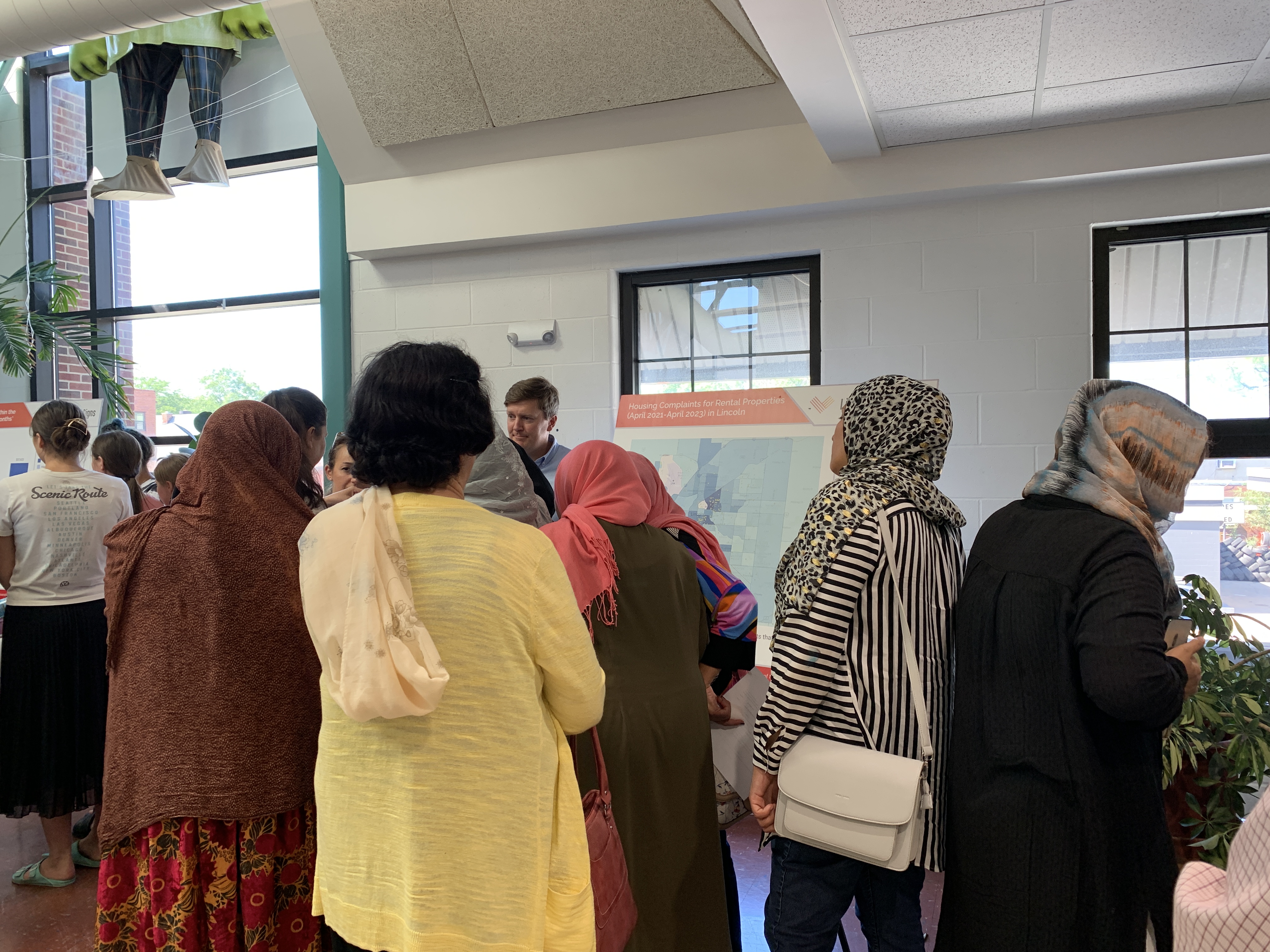Lincoln Vital Signs Data Walks
Published on Aug 14, 2023
Strong communities use data to make collective changes that ensure everyone has the opportunity to succeed and thrive. Lincoln’s ongoing data report, Lincoln Vital Signs, informs residents about trends affecting our city and invites collaboration across all sectors of our community to address the findings.
Utilizing a new research method to share data and center community members with lived experiences as co-experts in the process, University of Nebraska Public Policy Center (PPC) and the Foundation recently hosted multiple data walks in different neighborhoods throughout our community.
Modeled after a tool developed by the Urban Institute Housing Opportunity and Services Together (HOST) initiative, the objective of the data walks was to share and discuss local key data findings with community residents to help inform both the strengths and needs in our community as it relates to race and equity.
At each of the four data walks, community residents and stakeholders were invited to share a meal, engage with other residents, and provide their thoughts on Lincoln’s community information. Eight key data points were presented on large posters as facilitators helped explain the data, answer questions, and engage participants while taking notes on discussions.
The process was well-received and educational for participants and facilitators alike.
“It is important to be aware of the different issues and disparities we have when it comes to minorities in our community,” said Sandra Rojo of Lincoln Literacy.
Sandra assisted the process as an English/Spanish translator and interpreter for each data walk. She found the innovative approach to increased awareness and understanding of our community data very promising.
Having an accessible conversation around data and receiving buy-in from community members with lived experience was exciting for PPC Research Director and data walk coordinator, Dr. Janell Walther.
“One participant exclaimed they initially thought looking at data would be dull,” she shared. “However, they quickly realized it was interesting to learn and talk about our local data.”
Data points covered six areas of findings: Financial Well-being and Work, Housing and Neighborhoods, Safety, Education, Health, and Local Governance. Insights from these conversations will help inform an upcoming special issue of Lincoln Vital Signs focusing on race and equity in Lincoln.
To learn more and stay up to date on the upcoming special issue of Lincoln Vital Signs, visit LincolnVitalSigns.org.
